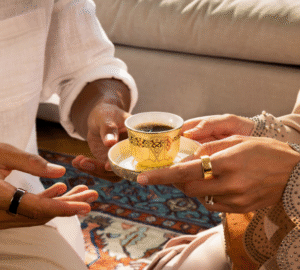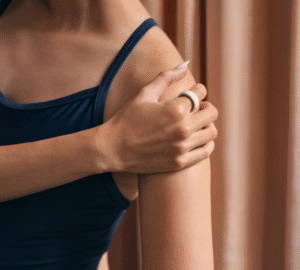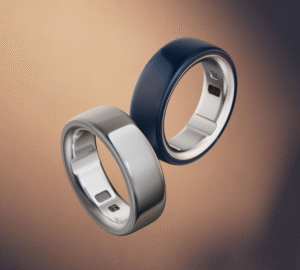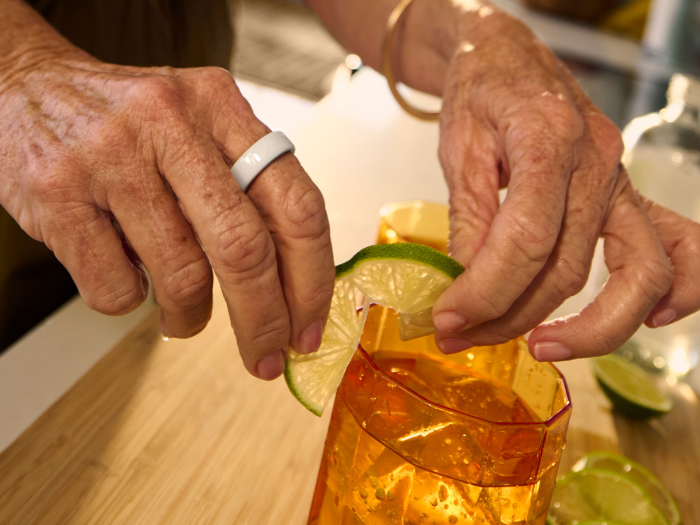Since booze is a nearly inescapable element of many people’s social lives, it probably comes as no surprise that “alcohol” is the most popular tag by Oura members. It also is probably no surprise that it’s not exactly a boon for your health. But how does alcohol specifically impact your biometrics? Let’s take a look.
Oura’s science team analyzed de-identified, aggregate data from over 600,000 members between January and October 2025, comparing nights tagged with alcohol to surrounding nights without alcohol. The results confirm what most of us already know—but quantify just how disruptive alcohol can be.
| Member Spotlight: See how Oura helped Gemma R. give up alcohol after she saw a massive spike in her resting heart rate on vacation. |
Heart Rate

Alcohol places immediate strain on the cardiovascular system. On nights when members tagged alcohol, average heart rate increased by 9.6%, and lowest resting heart rate rose by 8.2% compared to surrounding alcohol-free nights.
Higher heart rates overnight signal greater physiological stress and delayed recovery—meaning your body works harder while you sleep.
LEARN MORE: All About Your Resting Heart Rate
Heart Rate Variability (HRV)

HRV takes one of the hardest hits. Oura members saw a mean decrease of 10.8 milliseconds, or about a 15.6% drop in HRV, on nights after drinking.
Lower HRV reflects reduced parasympathetic (rest-and-repair) activity and higher sympathetic (stress) activity—your body’s way of signaling that it’s under strain.
LEARN MORE: What Is Heart Rate Variability?
Sleep Duration and Quality

Alcohol doesn’t just make it harder for your body to recover—it also cuts into your sleep itself. On average, Oura members slept 35 minutes less on nights with alcohol, and their overall Sleep Scores dropped by 6.8%.
It also made sleep less efficient: sleep efficiency declined by 2.2%, meaning members spent more time in bed without actually sleeping. Even if total time in bed looks similar, alcohol reduces how restorative that time truly is.
READ MORE: The Myth of the Nightcap: What Happens to Your Sleep When You Drink Alcohol
Sleep Architecture

Alcohol significantly reduces restorative sleep stages:
- Deep sleep decreased by 5 minutes (≈5%)
- REM (rapid eye movement) sleep dropped by 15 minutes (≈4%)
- Light sleep decreased by 14 minutes (≈1%)
Deep sleep is essential for physical repair, REM sleep supports memory, mood, and emotional processing, and light sleep helps transition the body between stages. When all three are reduced, your night’s rest becomes more fragmented—leaving you less recovered, even if you clock a full night in bed.
LEARN MORE: Deep Sleep: What Is It and How to Get More
The Takeaway: How Alcohol Affects Your Sleep
Across nearly every metric, alcohol negatively impacts recovery. On average, Oura members experienced:
- −34.6 minutes total sleep (−5.0%)
- −6.8% lower sleep score
- −15.6% lower HRV
- +9.6% higher average heart rate
- +8.2% higher resting heart rate
Even small amounts of alcohol can have measurable effects—especially when recovery, performance, or health are priorities.
RELATED: 7 Healthy Mocktail Recipes With All of the Flavor (And None of the Hangover)
*Data includes within-user mean differences comparing nights with an “alcohol” tag to the day preceding or following, excluding overlapping tags. Median values are used where applicable to minimize outlier effects.











